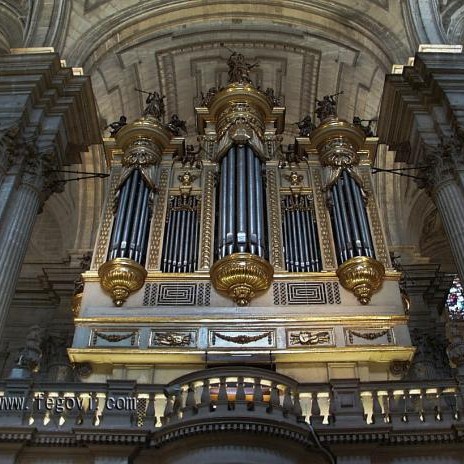"[Good music] make[s] the liturgical prayers of the Christian community more alive and fervent so that everyone can praise and beseech the Triune God more powerfully, more intently and more effectively.” - Pope Pius XII, Musicae Sacrae Disciplina (On Sacred Music) (1955)
First of all, on behalf of Catholic liturgical musicians, I want to apologize. A lot of us don't know what we're doing sometimes. And that's probably why you either don't like certain types of music for Mass, especially contemporary worship, or you don't understand the importance of certain songs throughout the Liturgy... and you think that the cross-clap is a healthy spiritual practice. Both point back to one thing - lack of training and/or care towards liturgical music.
Lately, I've encountered a lot of people in discussing music for Mass, especially with the new Roman Missal translation. I've encountered many people throughout my life that think that you can just pick whatever music you want for any point in the Mass, for example, "Why can't we just play this other song in place of singing the Psalm?" Some people like this free-wheeling attitude, because it's "fresh" and "exciting." Others have criticized the use of certain types of very appropriate, liturgical, prayerful, Catholic music because it "isn't the way liturgical music should be." They think that it should only be one type of music, whether that be Gregorian chant or organ-led hymnody, because it's the way music for liturgy has always been.
What is common from both sides of criticism is a misunderstanding of the music's function in the Liturgy. If we're walking out of Mass on Sunday criticizing the music, we're missing the point. The music's role is to serve the Liturgy. It's not for entertainment or to make us feel good, and it's not to make us feel more holy than we are. It's to guide our hearts into prayer with God. That's all any music for the Mass, whether Gregorian chant or contemporary worship, should do. As a side note, I won't take away from the fact that our Church teaches that Gregorian chant is "specially suited for the Roman Liturgy." (Sacrosanctum Concilium, 116) Why though? Because it easily lifts the heart into prayer with God, regardless of who is "leading worship" or what songs are selected for the Liturgy. I'll admit, there are many who misuse their role in music ministry by turning it into a stage. Let's pray for those who do. It's been a problem throughout the Church's history. Let's remember though, that the Liturgy at one point didn't have guitars, pianos, organs, even Gregorian chant. What the Liturgy had though, was the Eucharist, and everything should point to that Sacrament. The next time we go to Mass, let's allow whatever music is played to guide our hearts into prayer.
"Our participation in the Liturgy is challenging. Sometimes, our voices do not correspond to the convictions of our hearts. At other times, we are distracted or preoccupied by the cares of the world. But Christ always invites us to enter into song, to rise above our own preoccupations, and to give our entire selves to the hymn of his Paschal Sacrifice for the honor and glory of the Most Blessed Trinity." - Sing to the Lord: Music in Divine Worship, 14
For those who select music for Mass, let's dive even deeper into what the Church teaches about music and the Liturgy. Let's read documents the Church has published, like "Sing to the Lord: Music in Divine Worship" and "Sacrosanctum Concilium (Constitution on the Sacred Liturgy)," and also read books like "The Spirit of the Liturgy" by Cardinal Ratzinger, now Pope Benedict XVI. In later blogs I will dive into the music specific to each part of the Liturgy. Our effort as Liturgical musicians will transform the way that our communities will be able to receive God in the Word and how much they allow the Eucharist to transform their lives.
Links to Documents: Sacrosanctum Concilium Sing to the Lord: Music in Divine Worship
